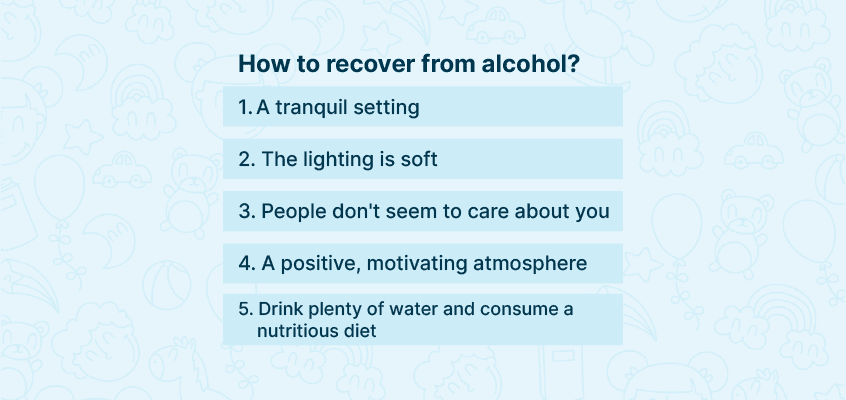Introduction
Withdrawal symptoms of alcohol are among the most severe and hazardous of any drug’s withdrawal effects. Alcohol withdrawal may occur in heavy drinkers who abruptly reduce their alcohol consumption or abstain totally (AW). Mild to moderate tremors, irritability, anxiety, or agitation are some of the signs and symptoms of AW. Delirium tremens, hallucinations, and seizures are the most severe withdrawal symptoms. Alcohol-induced chemical imbalances cause these symptoms in the brain; if you are not consuming alcohol regularly, neuronal activity increases.
What are the withdrawal symptoms of alcohol?
When you quit or reduce your drinking dramatically after drinking heavily for weeks, months, or years, you may experience mental and physical issues. Alcohol withdrawal results from this, and there could be mild to severe withdrawal symptoms.Unless you drink every day, you probably won’t experience withdrawal symptoms when you quit. Having experienced alcohol withdrawal before makes you more likely to share it when you next quit drinking.

How long do withdrawal symptoms of alcohol take?
Alcohol withdrawal can start as soon as a drinking session is over. Not everyone will experience alcohol withdrawal symptoms in the same manner during alcohol detox; some people will have milder symptoms than others. If you drink heavily, have been drinking for a long time, have already had withdrawals, or have other health concerns, you are more likely to have severe withdrawal.
“Alcohol withdrawal normally happens within 8 hours of the last drink, although it might occur days later,” according to the National Library of Medicine. The symptoms peak in 24 to 72 hours, although they can last for weeks.”
What are the Causes of Alcohol Withdrawal
Alcohol has a depressing influence on your system, according to physicians, and it slows down brain function and alters how your nerves transmit and receive data.
Your central nervous system adjusts to having alcohol around over time. Your body works hard to keep your brain awake, and your nerves communicate.
When the alcohol level lowers abruptly, your brain remains in this hyperactive condition, leading to withdrawal.
Withdrawal Symptoms of Alcohol
There is a wide range of alcohol withdrawal symptoms. The amount and duration of your symptoms depend on how much you drank.
You might experience mild symptoms six hours after putting down your glass. You might experience:
- Anxiety
- Hand tremors
- Nauseous
- Having a stomachache
- Suffering from insomnia or excessive sweating
Between 12 and 48 hours after you have consumed alcohol:
More significant issues, such as hallucinations, might emerge during this time, including hallucinations (12 to 24 hours after you stop drinking) and seizures within the first two days. It is possible to see, feel, or hear things that aren’t there. Discover the progression of alcohol withdrawal symptoms.
What are symptoms Within 48 to 72 hours after stopping drinking?
Delirium tremens, or DTs, usually set in around this time. Hallucinations and delusions are common symptoms of this severe condition. Alcohol withdrawal affects approximately 5% of all individuals. These individuals may also experience the following symptoms:
- Uncertainty
- A pounding heart
- The flu is a contagious illness.
- The blood pressure is very high.
- Sweating excessively
How to recover from alcohol?
In most cases, you won’t need much more than a supportive environment to get through withdrawals unless you have a significant health issue or have had severe withdrawals before. It includes the following:
- A tranquil setting
- The lighting is soft.
- People don’t seem to care about you.
- A positive, motivating atmosphere
- Drink plenty of water and consume a nutritious diet.
- Joining a support group
To determine the appropriate level of care, your doctor can guide you.
You should report symptoms like high blood pressure, rapid heartbeat, elevated body temperature to your doctor immediately, and seizures or more severe hallucinations. Your doctor may prescribe medication and an inpatient stay for you. Our website can also assist you in quitting alcohol.
- Medications for Alcohol Withdrawal
Doctors may prescribe benzodiazepines to treat or prevent withdrawal symptoms and medical consequences that might develop after severe alcohol withdrawal. These medications can prevent specific withdrawal symptoms from becoming life-threatening.
Doctors may use other drugs to help stabilise patients or provide assistance (e.g., anticonvulsants, antipsychotics, beta-blockers, and alpha-adrenergic agonists.). They can also offer fluids or vitamins to dehydrated or malnourished patients.
Doctors use the following medications to treat AUDS: that may be used to treat AUDs include the following:
- Acamprosate: Aids in preventing relapse after a period of abstinence from alcohol.
- Disulfiram: If you use alcohol, disulfiram causes unpleasant effects.
- Naltrexone: It Aids in blocking alcohol’s rewarding or reinforcing effects.
After abstinence or detox, doctors may administer some of these drugs.
- Prevention for Alcohol Withdrawal
Avoiding or drinking in moderation is the most efficient approach to prevent alcohol withdrawal symptoms.
One drink per day for women and two drinks per day for males counts as moderate drinking. However, if a person already has an alcohol use issue, discussing with a doctor about safe withdrawal might help them avoid some of the withdrawal symptoms.
A family history of drinking issues, depression and other mental health illnesses, and genetic variables are all risk factors for alcohol use disorder.
Those who believe they may have an alcohol use disorder or are dependent on alcohol should get assistance immediately.
Conclusion
Women should restrict themselves to one drink each day (7 per week), while men should limit themselves to two drinks per day, according to the National Dietary Guidelines (14 per week). A person’s risk of liver damage, cardiovascular illness, and other ailments increase if they drink more than this amount of alcohol. Even drinking within the suggested limits or lower amounts might raise cancer and physiological dependency risks.
Treating alcohol withdrawal is a band-aid solution that does little to address the underlying issue. When discussing symptom alleviation with your doctor, it’s good to bring up therapy for alcohol misuse or dependency. The doctor can provide you with tips to help you quit drinking.
Visit the United We Care website for support and information. Visit the Service Finder area of the website to discover the nearest service in India.











